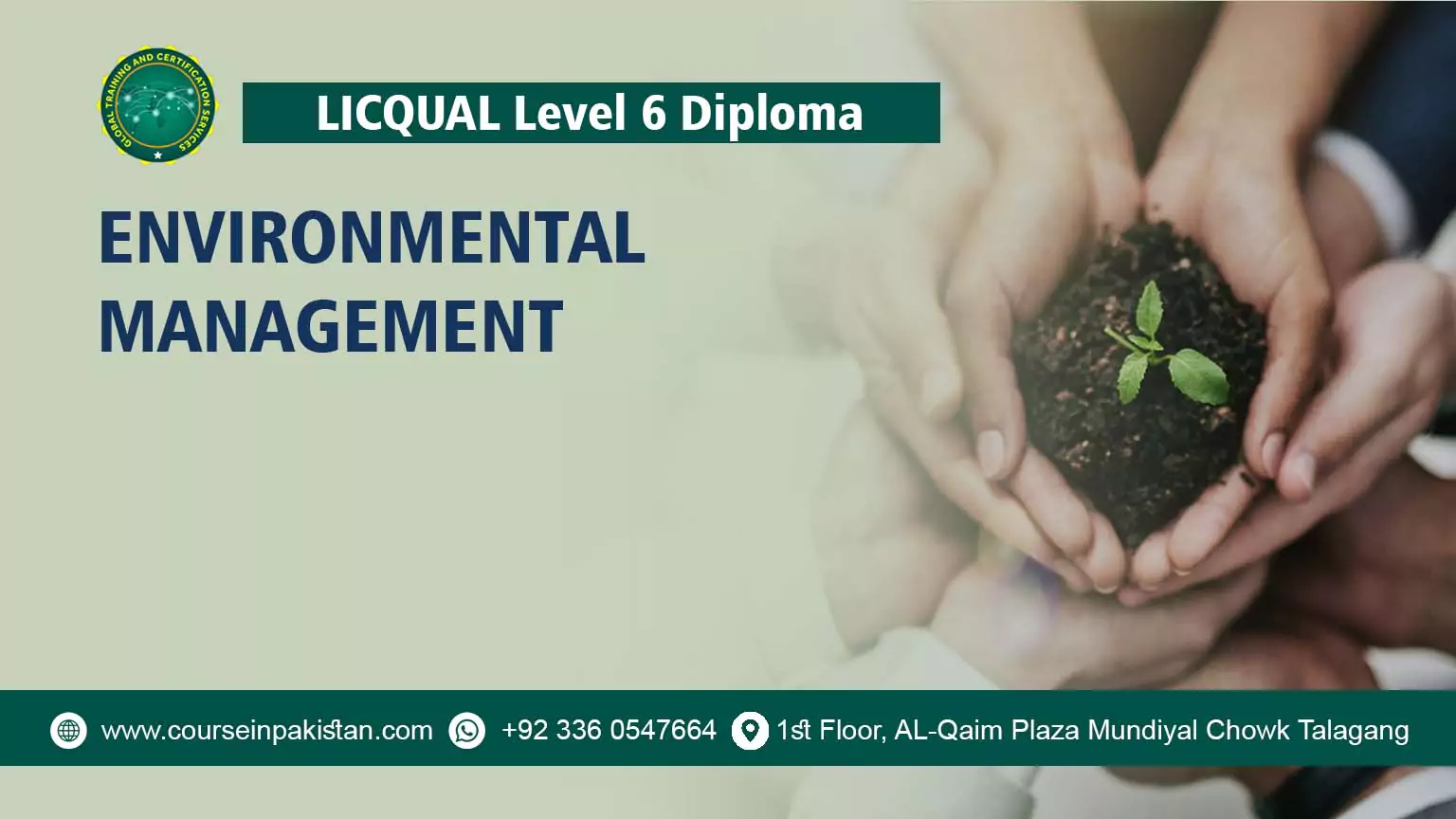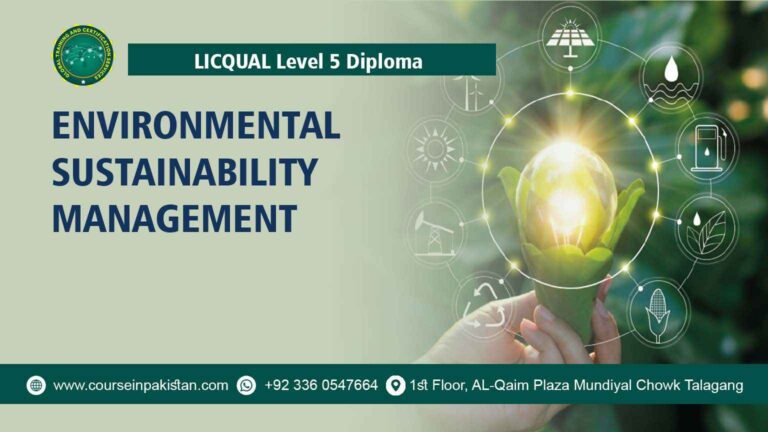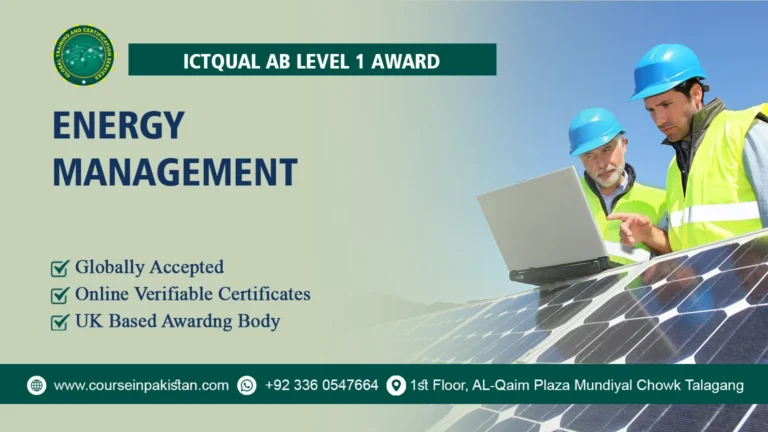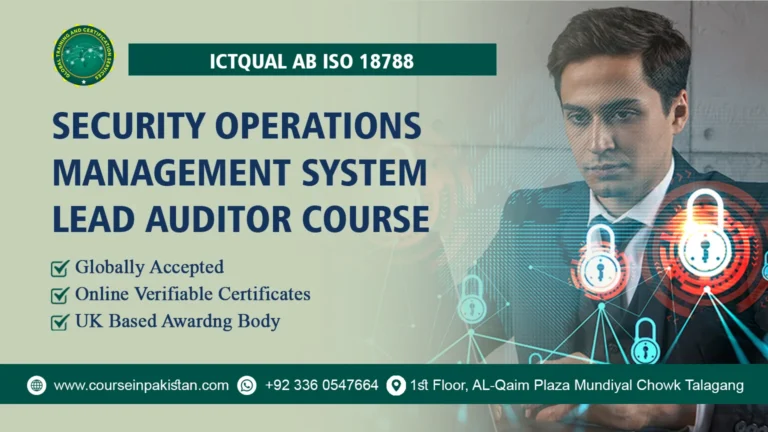
LICQual Level 6 Diploma in Environmental Management
“Navigating the Path to Sustainability: Exploring the Level 6 Diploma in Environmental Management”
In a world where environmental sustainability is at the forefront of global agendas, the need for skilled professionals to navigate complex environmental challenges has never been more crucial. Enter the LICQual Level 6 Diploma in Environmental Management—a comprehensive program designed to equip individuals with advanced knowledge and practical skills essential for effective environmental stewardship. In this blog post, we’ll delve into the details of this esteemed diploma, uncovering its significance, benefits, and future prospects.
The LICQual Level 6 Diploma in Environmental Management stands as a beacon for those passionate about championing environmental sustainability. This diploma transcends conventional education to delve deep into the intricate nexus of environmental science, policy, and management. It offers a rigorous curriculum that challenges students to analyze, innovate, and lead in the pursuit of a more sustainable future.
The benefits of pursuing the LICQual Level 6 Diploma in Environmental Management are manifold. Participants gain specialized expertise in environmental science, policy analysis, research methodologies, and strategic management. This advanced knowledge equips them to tackle complex environmental issues, drive sustainability initiatives, and influence policy decisions within organizations and communities. Additionally, the practical application of learned concepts ensures participants are well-prepared to address real-world environmental challenges and make meaningful contributions to environmental sustainability.
Upon successful completion of the diploma, participants can expect to achieve advanced learning outcomes, including:
- Mastery of advanced environmental science principles and their application to real-world challenges.
- Critical analysis of environmental policies and advocacy for evidence-based decision-making.
- Implementation of sustainable development strategies and corporate sustainability initiatives.
- Comprehensive environmental impact assessment and management skills.
- Design and implementation of climate change adaptation and mitigation strategies.
- Leadership in ecosystem restoration projects and conservation efforts.
- Utilization of geographic information systems (GIS) for environmental planning and management.
Mandatory Units:
The Level-6 Diploma in Environmental Management consists of 11 Mandatory units making a combined total of 60 credits, 600 hours Total Qualification Time (TQT) and 250 Guided Learning Hours (GLH) for the completed qualification.
- Environmental Sustainability and Principles 5
- Global Environmental Issues 7
- Environmental Policy 4
- Environmental Policy issues 8
- Environmental Law 4
- The key environmental Units of International legislation and compliance measures 6
- The Environmental Management system and sustainability development in a business context 5
- The collection, analysis and reporting on environmental information and data 5
- Environmental Management and assessment tools 6
- Analysis, problems and opportunities to deliver sustainability solution 5
- The development and implementation of programmes to deliver environmental performances, improvement 5
Amid escalating environmental concerns and growing societal expectations for sustainable practices, the LICQual Level 6 Diploma in Environmental Management addresses a critical need for skilled environmental leaders. By equipping participants with advanced knowledge, practical skills, and leadership capabilities, this diploma empowers them to navigate the complexities of modern environmental challenges and drive positive change. Moreover, as organizations increasingly prioritize environmental sustainability, the demand for qualified environmental management professionals continues to rise, making this diploma highly relevant and valuable in today’s job market.
The course outline for the LICQual Level 6 Diploma in Environmental Management provides a comprehensive roadmap for participants to navigate through key concepts, methodologies, and practical applications essential for effective environmental leadership. Here’s an overview of the course outline:
Unit 1: Advanced Environmental Science and Ecology
- In-depth exploration of advanced environmental science principles, including ecosystem dynamics, biogeochemical cycles, and ecological interactions.
- Application of ecological theories and concepts to analyze complex environmental issues and propose sustainable solutions.
- Evaluation of human impacts on ecosystems and biodiversity, and development of conservation and restoration strategies.
Unit 2: Environmental Policy Analysis and Advocacy
- Critical analysis of environmental policies, regulations, and frameworks at local, national, and international levels.
- Advocacy for evidence-based environmental policy decisions and stakeholder engagement in policy development processes.
- Strategies for influencing policy decisions and promoting environmentally responsible practices within organizations and communities.
Unit 3: Sustainable Development and Corporate Social Responsibility
- Examination of sustainable development principles and practices, encompassing social, economic, and environmental dimensions.
- Evaluation of corporate social responsibility (CSR) initiatives and their impact on environmental sustainability, stakeholder engagement, and business performance.
- Development of sustainable development strategies and CSR frameworks to integrate environmental considerations into organizational decision-making and operations.
Unit 4: Environmental Impact Assessment and Management
- Comprehensive understanding of environmental impact assessment (EIA) and strategic environmental assessment (SEA) processes and methodologies.
- Conducting rigorous environmental impact assessments to identify potential environmental effects of development projects and propose mitigation measures.
- Development of environmental management plans to minimize, monitor, and manage environmental impacts throughout the project lifecycle.
Unit 5: Climate Change Adaptation and Mitigation Strategies
- Exploration of the science of climate change, including its causes, impacts, and projections for the future.
- Assessment of adaptation strategies to address the impacts of climate change on natural and human systems, including infrastructure, agriculture, and ecosystems.
- Identification and evaluation of mitigation strategies to reduce greenhouse gas emissions and transition to a low-carbon economy.
Unit 6: Ecosystem Restoration and Conservation
- Understanding of ecosystem restoration principles, methodologies, and best practices, including habitat restoration, reforestation, and wetland rehabilitation.
- Design and implementation of conservation projects to protect and enhance biodiversity, ecosystem services, and natural habitats.
- Evaluation of the effectiveness of ecosystem restoration and conservation efforts in achieving ecological and socio-economic objectives.
Unit 7: Geographic Information Systems (GIS) for Environmental Management
- Acquisition of proficiency in geographic information systems (GIS) software and spatial analysis techniques.
- Application of GIS tools to analyze spatial data, map environmental features, and assess landscape dynamics.
- Utilization of GIS technology for environmental planning, resource management, and decision-making.
This course outline provides participants with a structured framework to explore and engage with diverse topics in environmental management, from theoretical concepts to practical applications, empowering them to become effective environmental leaders and change agents.
The LICQual Level 6 Diploma in Environmental Management is ideal for mid-career professionals, recent graduates, and individuals already working in environmental roles who aspire to advance their careers and make a meaningful impact in environmental management. Whether participants are seeking to enhance their expertise, transition into leadership roles, or drive sustainability initiatives within their organizations, this diploma offers the knowledge, skills, and credentials needed to succeed.
The entry requirements for the LICQual Level 6 Diploma in Environmental Management may vary depending on the institution offering the course. However, typical requirements may include a relevant Level 5 qualification, work experience in environmental management or a related field, and English language proficiency for non-native English speakers.
Upon completion of the LICQual Level 6 Diploma in Environmental Management, graduates have numerous pathways for future progression. Many may choose to pursue further education, such as a master’s degree in environmental management, sustainability, or a related field, to deepen their expertise and expand their career opportunities. Others may opt to pursue professional certifications or accreditations in specialized areas of environmental management, such as environmental auditing or sustainable business practices. Additionally, graduates can explore leadership roles in environmental consultancy firms, government agencies, multinational corporations, research institutions, or non-profit organizations dedicated to environmental advocacy and conservation.
In conclusion, the LICQual Level 6 Diploma in Environmental Management offers a transformative educational experience for individuals committed to driving positive change in environmental sustainability. By providing advanced knowledge, practical skills, and leadership development opportunities, this diploma empowers participants to become influential environmental leaders and shape a more sustainable future for generations to come.
To take admission in Based Computer course, Please visit our institute
Global Training and Certification Services
1st Floor, Al-Qaim Plaza, Mundiyal Chowk, Talagang
For any query or detailed information please call us on
+92-336-054 7664
For WhatsApp Please







